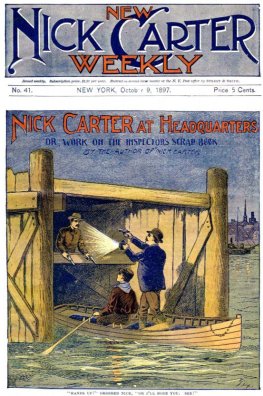INTRODUCTION.
Table of Contents
The existence of the Autobiography which is published in the following pages came to my knowledge in the course of a chance conversation with a distant relative of the writer's family. The original manuscript has been carefully preserved, and has been for many years in the possession of Mr. G. H. Carter, of Helston. He received it from his father, the G. Carter mentioned on page 1, who was a nephew of Harry Carter himself. The memoir of the writer, which will be found in the "Wesleyan Methodist Magazine" for October, 1831, was based upon information supplied by G. Carter, partly from the manuscript and partly from his own knowledge. It is now printed from the manuscript which was kindly lent to me for the purpose by Mr. G. H. Carter.
The part of Cornwall to which the autobiography chiefly relates is the district lying between the two small towns of Marazion and Helston, a distance of about ten miles on the north-eastern shores of Mounts Bay, comprising the parishes of Breage, Germoe, St. Hilary, and Perranuthnoe. The bay is practically divided into two parts by Cuddan Point, a sharp small headland about two miles east from St. Michael's Mount. The western part runs into the land in a roughly semicircular shape, and is so well sheltered that it has almost the appearance of a lake, in fact, the extreme north-western corner is called Gwavas Lake. From the hills which surround it the land everywhere slopes gently to the sea, and is thickly inhabited. The towns of Penzance and Marazion and the important fishing village of Newlyn occupy a large portion of the shore, and around them are woody valleys and well cultivated fields. To the eastward of Cuddan is a marked contrast. There, steep and rocky cliffs are only broken by two long stretches of beach, Pra Sand and the Looe Bar, on which the great seas which come always from the Atlantic make landing impossible except on a few rare summer days. With the exception of the little fishing station of Porthleven there is not a place all along the coast from Cuddan Point to the Lizard large enough to be called a village. Inland the country is in keeping with the character of the coast. Trees are very scarce, and the stone hedges, so characteristic of all the wild parts of West Cornwall, the patches of moorland, and the scattered cottages, make the whole appearance bare and exposed.
Porth Leah, or the King's Cove, now more usually known as Prussia Cove, around which so much of the interest of the narrative centres, lies a little to the eastward of Cuddan Point. There are really two coves divided from one another by a point and a small island called the "Enez." The western cove, generally called "Bessie's Cove," is a most sheltered and secluded place. It is so well hidden from the land that it is impossible to see what boats are lying in the little harbour until one comes down to the very edge of the cliff. The eastern side of the point, where there is another small harbour called the "King's Cove," is more open, but the whole place is thoroughly out of the world even now.
The high road from Helston through Marazion to Penzance now passes about a mile from the sea, but at the time of which Harry Carter was writing this district must have been unknown and almost inaccessible. From all accounts West Cornwall at that time was very little more than half civilised. The mother of Sir Humphry Davy (born at Penzance, 1778) has left us a record that when she was a girl "West Cornwall was without roads, there was only one cart in the town of Penzance, and packhorses were in use in all the country districts" (Bottrell, iii. 150). This is confirmed by a writer in the "Gentleman's Magazine," who says that in 1754 there were no roads in this district, the ways that served the purpose were merely bridle paths "remaining as the deluge left them and dangerous to travel over" ("Gentleman's Magazine," October, 1754); and by the official records of the town of Penzance, which show that in 1760 the Corporation went to some expense in opposing the extension of the turnpike beyond Marazion, to which place it was then first carried from Penryn (Millett's "Penzance, Past and Present").
The places of which the names are mentioned in the autobiography, but which are not shown in the map, such as Rudgeon, Trevean, Caerlean, Pengersick, Kenneggey, and Rinsey, are all in the immediate neighbourhood of Prussia Cove. They are merely little hamlets of four or five cottages each, and there is no reason to suppose that they were any larger one hundred years ago. Helston, the market town of the district, is about six miles off, and had then a population of some two thousand people.
The chief interest in the autobiography is probably that which it attracts as the most authentic account of the smuggling which was carried on in the neighbourhood in the latter portion of the last century. Cornwall has long enjoyed a certain reputation for pre-eminence in this particular form of trade, and apparently not without some reason. A series of letters of the years 17501753 were published some years ago in the journal of the Royal Institution of Cornwall (vol. vi. pt. xxii. p. 374, "The Lanisley Letters") to a Lieutenant-General Onslow, from George Borlase, his agent at Penzance, asking that soldiers might be stationed in the district, because "the coasts here swarm with smugglers," and mentioning that a detachment ought to be stationed at Helston, as "just on that neighbourhood lye the smugglers and wreckers more than about us, tho' there are too many in all parts of this country." In his "Natural History of Cornwall," published in 1758, Dr. Borlase regrets (p. 312) that "the people of the sea coast are, it must be owned, too much addicted to carry off our bullion to France and to bring back nothing but brandy, tea, and other luxuries." This is delicate, but there can be no doubt of his meaning; and he goes on to complain that "there is not the poorest family in any parish which has not its tea, its snuff, and tobacco, and (when they have money or credit) brandy," all, we may presume, duty free. The will of Philip Hawkins, M.P. for Grampound, who died on September 6, 1738, is perhaps the most striking record, for he actually bequeathed 600 to the king to compensate for the amount of which his tenants had defrauded the Customs.
That the smuggling prevailed to such an extent is not to be wondered at, for the law must have had but a very slight hold on such a rough and scattered population, living so far away from any of the large centres of England. In such a narrow country too, where no one lives very far from the sea, the miners took to smuggling as readily as the fishermen. A trip to Roscoff or Guernsey formed a pleasant change after a spell on tribute underground or working stamps. A rough, reckless, and drunken lot were these tinners, and if riots and bloodshed were more scarce in West Cornwall than in some parts, it must have been due to the judicious absence of the Custom House officials, and not to any qualities in the smugglers. George Borlase says ("Lanisley Letters") that in December 1750 a Dutch ship laden with claret was wrecked near Helston, and "in twenty-four hours the tinners cleared all," the authorities apparently not daring to interfere; and that just before this date a man who went to the assistance of the revenue officers had been killed near the same place.





![Jenny Carter - Fuzzy Logic(2021)[Carter et al][9783030664749]](/uploads/posts/book/265335/thumbs/jenny-carter-fuzzy-logic-2021-carter-et.jpg)








